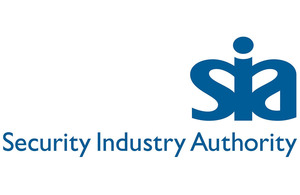The Awards team received entries from around the country, from a wide variety of organisations striving to make regulation work to protect people and to support business.
As ever, the standard is very high, and on 10 June OPSS will hold an online event to announce the winners to an audience of regulatory professionals from business organisations and the public sector.
The event will celebrate outstanding achievements in supporting businesses and protected consumers, contributing towards fighting coronavirus, rebuilding the economy, and unleashing innovation.
Paul Scully MP, Parliamentary Under Secretary of State in the Department for Business, Energy and Industrial Strategy and Minister for London, will provide the opening address before videos are shown highlighting the work of the finalists.
The external judging panel, chosen for their breadth of knowledge and expertise from across the regulatory field, will share how they came to their decision about the winners.
Please register your interest to attend on Eventbrite before 4 June in order to receive clear joining instructions beforehand.
The different category finalists are outlined below.
Better Business for All
Sussex Better Business for All – Allergy project
Sussex Better Business for All – Charcuterie
Business Regulatory Support (Cornwall Council)
Devon, Plymouth, Somerset & Torbay Trading Standards
Heart of the South West Better Business for All
Cumbria Better Business for All Group
Eastbourne Hospitality Association Joint Primary Authority Partnership
Product Safety
Electrical Safety First
Hillingdon Trading Standards
Newbury Community Resource Centre
British Toy and Hobby Association
British Safety Industry Federation
Leicestershire County Council Trading Standards Imports Team
Devon, Plymouth, Somerset and Torbay Trading Standards
The Cosmetic, Toiletry and Perfumery Association
Westminster Trading Standards and eBay
Innovation and Technical
Bartosz Machelski, Paul Brison, Callum Sheen, John Barden, and Dave Wright
Glint Media Ltd t/a Menu Guide and Milton Keynes Council
Age Check Certification Scheme
Elmbridge Borough Council Food Team (in Environmental Health)
University of Northampton, BANES, Destination Management Organisation visit Bath
Coronavirus
Business Regulatory Support (Cornwall Council)
Primary Authority Supermarket Health and Safety Covid Expert Panel
Chorley and South Ribble Council
Hertfordshire Better Business for All – Covid19 Business Guidance Group
Heart of the South West Better Business for All
Lichfield District Council and Central England Co-op
Environmental Health and Trading Standards Covid19 Expert Officer Group – ETC19
Directors of Public Protection Wales
Oxfordshire Coronavirus Regulatory Partners
Primary Authority
Primary Authority Supermarket Health and Safety Covid Expert Panel
Wakefield Metropolitan District Council and EC4 Hotel
Wakefield Metropolitan District Council and Arla Foods Ltd
National Fire Chiefs Council
British Toy and Hobby Association
Hampshire and Isle of Wight Fire and Rescue Service in Partnership with NatWest Group
FareShare/Royal Borough of Greenwich
Devon, Plymouth, Somerset and Torbay Trading Standards
Lichfield District Council and Central England Co-op
Milton Keynes Council and Domino’s Pizza Group UK and Republic of Ireland
The Wine and Spirit Trade Association primary authority partnership with Salford City Council on behalf of the Greater Manchester Regulatory Centre of Excellence and the Shared Regulatory Services of Bridgend, Cardiff, and the Vale of Glamorgan
Eastbourne Hospitality Association Joint Primary Authority Partnership

